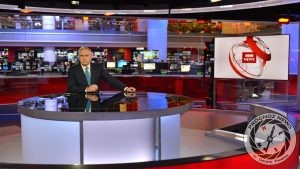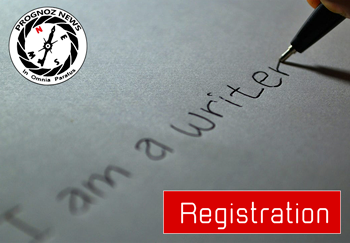The Truth in Allegations of Bias in Liberal Journalism

By Matthew Parish, Associate Editor
Allegations of bias in liberal journalism are not new, but recent events—including the abrupt departure of Tim Davie as director-general of the BBC—have cast fresh light on how such bias is perceived, how it arises, and how news organisations respond when their impartiality is questioned.
Ideological Origins of the Press in Liberal Democracies
The liberal press emerged alongside the Enlightenment, founded on the ideals of freedom of expression, accountability of power, and the marketplace of ideas. In that tradition, newspapers and broadcasters conceived of themselves as guardians of civic virtue—monitoring authority, amplifying dissent, and defending individual rights. In this sense, what might today be termed “liberal bias” was originally not so much bias as the moral impulse of journalism aligned with liberal democratic values.
Over time, however, the meaning of “liberal” broadened to include social progressivism, multiculturalism, gender equality and environmental concerns. When journalistic institutions advance or assume these values, those outside that value-space may view their reporting as partial. Thus an editorial decision in favour of reproductive rights, for instance, might be seen by some not as the application of liberal democratic principle but as ideological partisanship.
Structural and Commercial Biases in the Modern Media Landscape
In the digital age the business model of journalism has shifted dramatically. Traditional advertising revenues have collapsed, pushing many outlets toward subscription models, targeted content, and engagement-driven distribution. Because educated urban liberal audiences are often more profitable for subscribers and news platforms, many media organisations increasingly tailor content to that demographic.
This dynamic produces a “selective framing” effect: news outlets may choose, emphasise and contextualise stories in ways that speak to the cultural preferences of their audience. Thus liberal-leaning outlets might emphasise social justice, climate risk or identity issues; conservative-leaning outlets may emphasise tradition, security or national sovereignty. Even without a conscious editorial conspiracy, the tendencies of market incentives and audience segmentation can embed bias. In turn this may reinforce a perception among broader publics that a given news organisation is “liberal”.
The Sociological Transformation of the Newsroom
Another source of bias lies in the composition and culture of newsrooms themselves. Historically many reporters had regional, working-class or mixed social backgrounds. In recent decades, journalism has professionalised, recruiters increasingly favour university-educated, metropolitan, socially liberal candidates, and journalism schools proliferated. The consequence is a relative sociological uniformity within some major news organisations.
This homogenisation means that implicit assumptions—about which sources are credible, which issues matter, which questions count as central—tend to reflect a particular worldview. Reporting on economic populism, rural conservatism or identity backlash may be framed as reactionary or irrational rather than as legitimate expressions of grievance. That gap between newsroom culture and public sentiment can generate mistrust and feed the narrative that mainstream news is detached or elitist.
The Paradox of Objectivity and the Search for Trust
No journalism can ever be perfectly objective: choice of topic, angle, sourcing, language, headline and prominence all involve judgement. The journalist’s challenge is not to pretend neutrality but to maintain fairness, transparency and trust.
In the liberal tradition, journalism’s strength has been its commitment to evidence, reasoned argument, human rights and accountability. Its weakness, however, arises when those values become orthodoxy rather than inquiry—that is, when the newsroom ceases to ask whether its own assumptions deserve scrutiny. When it frames issues exclusively in terms of “progress” and “resistance”, it may lose sight of how others perceive alternative values. The result is diminished trust, resentment and a fertile ground for accusations of bias.
Recent events at the BBC illustrate this dynamic. On 9 November 2025 BBC Director-General Tim Davie and his News head, Deborah Turness, resigned amidst serious accusations of editorial mis-handling by the BBC, including the alleged misleading editing of a speech by former US President Donald Trump and concerns over coverage of Gaza, trans rights and the BBC Arabic service.
These resignations are significant for several reasons:
– They signal that accusations of bias are not merely rhetorical; major institutions face real consequences when large audiences or oversight bodies judge them to have fallen short.
– They reflect how rapidly the terrain – of media trust, political contestation and geopolitics – has changed. The BBC, long seen as a beacon of impartiality, now faces internal and external pressures that challenge that identity.
– They underscore that “liberal bias” allegations are often bound up with institutional legitimacy: once a major news organisation’s impartiality is questioned, its reputation and business model may suffer.
– They highlight the complexity of accountability: Turness insisted the BBC was not institutionally biased, even while accepting mistakes in the specific case.
In other words the BBC crisis did not necessarily confirm a broad liberal bias; rather it revealed how the intersection of high-stakes politics, institutional scrutiny and editorial judgment can produce lapses that undermine trust. For journalists committed to liberal ideals, the lesson is that procedural openness, self-critique and pluralism matter as much as the values themselves.
Bias and the Crisis of Trust in Democracies
In recent years Western democracies have seen a rapid decline in public trust in both journalism and institutions. When large segments of the public believe that the media favour one side (liberal or otherwise), the effect is not simply an ideological critique but a democratic problem: if citizens believe their news sources are untrustworthy, civic discourse suffers, polarisation intensifies, and the common factual ground shrinks.
The BBC resignations form part of this broader pattern: major news organisations increasingly operate under contested legitimacy; media literacy, platform dynamics and political guerilla warfare all exacerbate the problem. When a major organisation like the BBC is accused of “systemic bias”, the outcome is not just reputational damage—it fuels the narrative that journalism is partisan, which in turn weakens the institution’s capacity to serve its public.
Thus bias allegations signal not just editorial failure but democratic stress. A news organisation that cannot maintain trust may see its licence fee or funding model come under pressure (as some BBC figures now acknowledge).
Towards Reform: Transparency, Pluralism and Accountability
The resignations at the BBC offer an opportunity for reform. Key pillars of renewal include:
– Transparency in sourcing, editing and framing: public editors, independent audits, corrections logs and clearer explanatory journalism help reduce suspicion.
– Promoting pluralism within newsrooms: recruiting staff from diverse regional, social and ideological backgrounds helps ensure that a broad variety of perspectives shape coverage.
– Separating the market incentives from the news-mission imperatives: news organisations must resist the temptation to prioritise audience comfort over challenge and investigative rigour.
– Institutional willingness to admit and correct mistakes: the BBC’s acknowledgment of “mistakes” (albeit without conceding broad institutional bias) is a step in the right direction.
– Developing mechanism for external review: oversight bodies, audience councils or even parliamentary scrutiny play a role in maintaining confidence.
The BBC case shows how fragile trust can become if a newsroom appears to stray from these principles. Restoring that trust requires not merely internal reassurance but demonstrable change.
Conclusion: Bias as a Mirror of Democracy
Allegations of liberal bias in journalism are neither wholly baseless nor entirely accurate in all cases. In many media organisations biases emerge from sociological, structural and ideological roots rather than deliberate partisanship. The case of the BBC shows how even an institution widely regarded as impartial can lose its footing when editorial errors accumulate and legitimacy is challenged.
In democratic terms the real issue is not so much whether journalism is ever truly neutral—but whether it remains honest, open to scrutiny and accountable. Bias is almost inevitable; monopoly or unaccountability is the true danger. In this sense the resignation of Tim Davie and his colleague functions less as a verdict on “liberal journalism” in general than as a warning that even the most respected organisations can falter when trust is eroded.
For liberal journalism to remain credible, it must not only advocate for democracy, rights and reason—but also defend its own processes, invite critique and ensure its structures reflect the pluralism it advocates. When it does so, the charge of bias may persist, but the seriousness with which it is addressed becomes a mark of institutional maturity and democratic health.
8 Views




